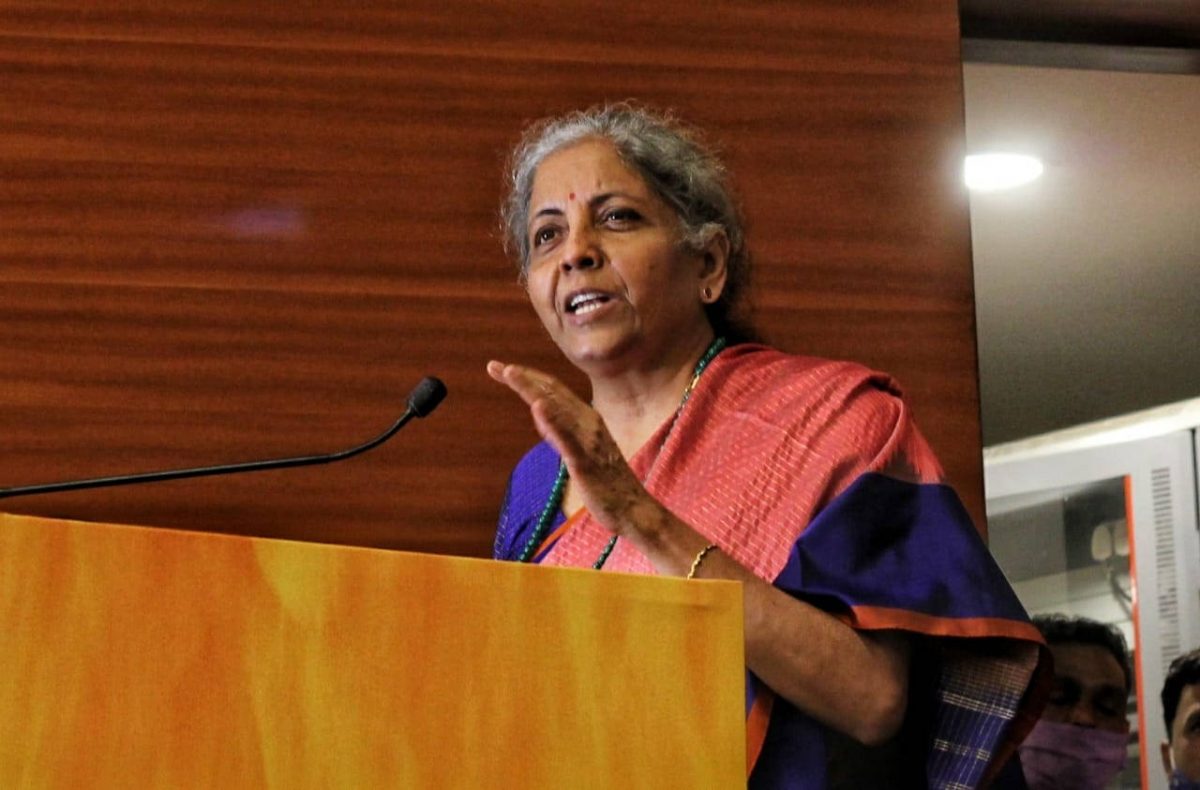Finance Minister Nirmala Sitharaman, who is currently visiting the US, lashed out at the foreign media for continuously promoting a one-sided narrative—minorities in India are under threat. Speaking at an event hosted by the Peterson Institute for International Economics at Washington, she noted that India is home to the second-largest Muslim population in the world.
“If there is a perception, or if there’s in reality, their lives are difficult or made difficult with the support of the state, which is what is implied in most of these write-ups, I would ask, will this happen in India in the sense, will the Muslim population be growing than what it was in 1947?” she asked.
Take the case of the BJP ruled Uttar Pradesh.
About 23.6 crore Muslims live in UP alone. In 2011, the figure was 19.9 crore. Populationu.com’s graph shows a steady rise in UP’s Muslim population since 1961. The rise in Muslim population has not stagnated even after the BJP rule, which is perceived by many as a pro-Hindu party.
Last year, Chief Minister Yogi Adityanath’s spectacular victory at the UP Assembly elections – his second term in a row, came as a surprise for many. More so, as the assembly election results once analysed, revealed that a sizeable Muslim population had voted for the BJP. One of the key reasons was the seamless distribution of the various welfare schemes rolled out during the Covid pandemic.
“The beneficiaries – irrespective of their caste, community and religion received the benefits of the welfare schemes,” Sajjan Kumar, political analyst, who extensively toured the state before the polls told India Narrative. Kumar added that the improvement of law and order situation in the state also helped BJP garner votes from the minority communities.
Interestingly, Varanasi, considered the seat of Hinduism, has a 25 per cent Muslim population.
“There is no animosity — there are areas where people of both communities live together. We live in peace,” a taxi driver in the city recently told India Narrative.
The story is much the same in most other states. A tour into the interiors of another BJP ruled state, Karnataka, will mirror a blossoming Muslim community along with the majority Hindu. That apart, the recent victory for the BJP in the northeastern states with people of various religions and ethnicities highlights that the growing narrative in the media that the space for minorities in the country is shrinking is motivated and a white-lie.
The foreign media has, however, focused primarily on events where the Muslims or other minority groups have been targeted in India. The BBC in a report published last year said that UP made headlines for violent crimes against Muslims since 2014, when Prime Minister Narendra Modi came to power. “The BJP appointed Yogi Adityanath, a saffron-robed Hindu monk-turned politician known for his anti-Muslim stance, as the chief minister,” it said.
A government official pointed out that instances of violence have often impacted people of both communities, Hindus and Muslims alike.
“Violence should be condemned—whether the victim belongs to the majority community or minority. But there has often been a deliberate attempt to present a one sided picture,” he said. “Until now Muslims were used just as a vote bank. That is changing,” the official said.
In 2021, the reputed New York Times put out a job advertisement, seeking to hire a South Asia business correspondent. While it acknowledged the growing power of India, it also said that India’s future was at crossroads. “Mr Modi is advocating a self sufficient, muscular nationalism centred on the country’s Hindu majority. That vision puts him at odds with the interfaith, multicultural goals of modern India’s founders. The government’s growing efforts to police online speech and media discourse have raised difficult questions about balancing issues of security and privacy with free speech,” it read.
While a section of media persons found nothing wrong with the content of the advertisement, according to Kumar, the news organisation instead of seeking people with professional integrity and journalistic skills wanted activists. “The media house was naturally looking for an activist not a journalist,” he said, adding the foreign media and many news organisations within the country have taken up the job that the opposition parties are required to do.
“The foreign media behaves as if India’s prime opposition party has outsourced its battle against the incumbent regime to these news organisations and this is making their reportage inaccurate,” Kumar noted.
Meanwhile, despite India ranking 150th out of 180 countries surveyed in the World Press Freedom Index released by Reporters Without Borders in 2022, Sitharaman made an open offer to foreign media persons to visit India.
“I will host them. Let them come and let them travel around India and prove their point,” the Finance Minister said at the event.
Also read: India lower than Pakistan, Sri Lanka on Happiness Index: Is it believable?




















